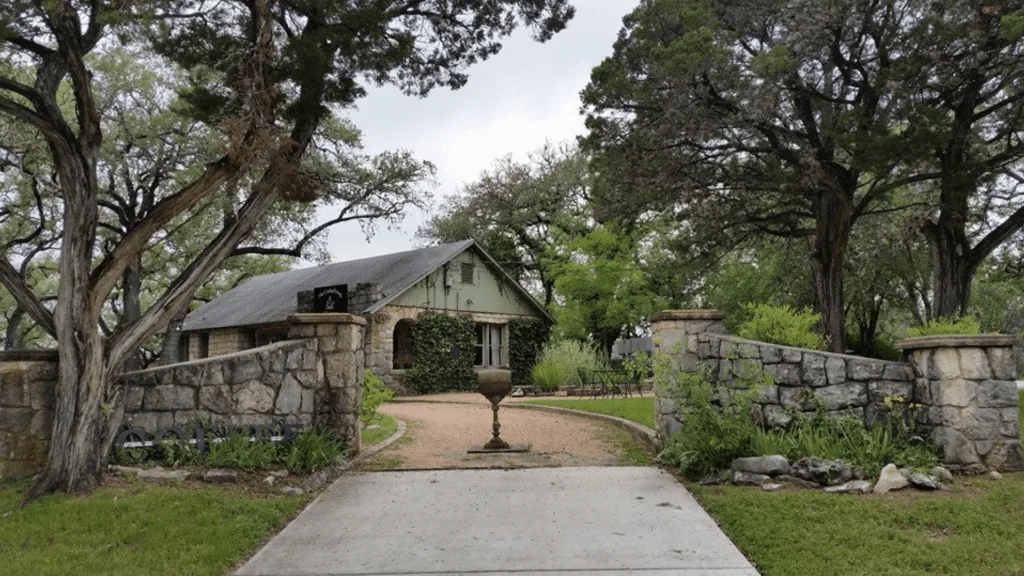There’s something so special about people coming together to share their day-to-day lives and struggles, study God’s Word, and pray for one another. The friendships built on this foundation often last a lifetime.
Has God given you a heart for initiating this sort of gathering? Please don’t take that calling lightly! God can do incredible things with just one willing heart.
But maybe you’re wondering how to lead a small group Bible study? Or if you’re even capable?
I’ve led several small groups over my lifetime, one from my childhood home, one from a college dorm room, and several from local coffee shops across Iowa, Oklahoma, and Texas. Though I didn’t always feel well-equipped, I always felt called. So I brought what I had to the table and trusted God to fill in the gaps.
After several years of trial and error, of lessons that hit home and lessons that fell short, of some packed houses and some empty, I learned exactly how to lead a small group. And how not to lead a small group.
Consider the environment that will best cater to your group.
I attended family small groups for several years. We’d meet at the leaders’ home, each bringing a dish that coordinated with the week’s theme, and eat dinner together before diving into our Bible study. It was the perfect setup for a lot of families, it seemed.
But when I started my own small group, I wanted to cater it to women with young children. And what woman attending small group alone with young children wants to cook a meal first?
That’s why I chose to meet outside a coffee shop with a large outdoor space. Order a fancy coffee, no meal to prep, no cleanup after, and let your kids run wild outside.
I promised to officially finish within an hour so that members could leave if they needed or stay to visit longer if they’d like. I really felt I was meeting the practical needs and desires of the people I wanted to reach.
So think about your group. Do they want to cook and share in a meal? Or do they want to simply show up?
Do they want to spend three hours at your house every week? Do they have that kind of bandwidth? Or would they rather focus on the Bible study itself and commit to meeting for just one hour?
Heck, my group only met every other week. It just felt more doable for everyone.

Make a plan for kids.
If you have children, you know they are masters of distraction. Good luck having a serious conversation with them running up to you every two minutes to tattle on their sibling or tell you they’re bored. So…make a plan!
The best plan is always to hire a babysitter. Have someone available who can engage children in activities so their parents can give their full attention to the small group. You can pay for them yourself (possibly out of tithes?) or agree to split the cost with other parents attending.
I personally always had a difficult time finding an early-morning sitter. So I visited the dollar store and packed a basket full of balls, frisbees, sidewalk chalk, paper, crayons, markers, playdough, anything that would occupy our children while we discussed the Bible together. It wasn’t a perfect solution, but it provided much more focused time than if we had made no plan at all.
Invite everyone. Yes, even that person.
I may or may not be slightly terrified to invite people to anything, especially to something I’m leading myself. But it doesn’t have to be a big, scary deal! In fact, it can be a very logical move!
My small group met just a few minutes after I dropped my daughter off at preschool—at the coffee shop next-door to her preschool. If I thought about it, it only made sense to invite fellow preschool moms. “If you ever want to grab a coffee with friends while your kid’s in school, we’re right next door every other Friday morning!”
I mean…your small group is literally a gathering of friends who are hyper-focused on loving and supporting one another. What human doesn’t want that? And even if they say no, what human doesn’t appreciate being invited into your inner circle of friends?
So invite them! Maybe they’ll say no, but maybe they’ll surprise you and say yes! Just don’t decide for them by not inviting them at all.
Remember that it doesn’t matter who, or if anyone, shows up.
I enjoyed several small groups with a large number of attendees. We’ve filled small rooms at the coffee shop and have had to pull several tables together in the courtyard outside. But I’ve also experienced several weeks where I worked hard to prepare a lesson, prayed over it, packed up toys for all of the kids, and then sat alone waiting for no one.
The first time it happened, I felt really dumb. I had ordered my coffee and asked the barista to leave a tab open for all of the friends who would surely be coming in just a minute.
But then…I realized that this was just life. Sometimes your kids are sick and you can’t make it. Sometimes you have a doctor’s appointment scheduled at the same time. And heck, sometimes you just didn’t get a wink of sleep because your baby’s teething, and the last thing you want to do is pack them up and drag them to a coffee shop.
Sure, I might have felt a little silly sitting there alone, waiting for no one. But you know what? If no one shows up, no one knows that no one showed up—no one except you.
And the fact is that you did your part. You prepared a lesson and you showed up for anyone and everyone who might come.
You planted the seed. That’s all that God has called you to do.
So pat yourself on the back, rest in the fact that your next week’s lesson is ready to roll, and keep at it! Keep inviting friends. And keep making yourself available. Keep planting your seeds and trusting God to water them.
Prepare your lesson.
Some people prefer to create their own lessons. They feel lead to a particular topic, do their own research, jot down notes, and invite their small group into the conversation.
Others prefer to read a Christian book together, one chapter or section at a time. Members each have their own copy, read the assigned portion before the group meets, then come ready to discuss.
Still others follow study guides. (We have our own small group study guide HERE if you’re looking to lead a ladies’ small group…or even study the Bible together with a few friends!)
However you choose to lead your group, I would suggest finding a way to make every lesson relatable, with opportunities for practical application. For example, say you study the story of Ruth. Be sure that your group members are asking themselves, what does Ruth’s story mean for me today? Without that practical and personal application, you’re just studying the stories of other people…or theologies…or spiritual principles.
Other important questions to ask:
- What is one thing small group members can do today to start incorporating what they learned into their own walk with Christ?
- How can they practically apply today’s lesson to that problem they were just talking about?
- What does this lesson mean to them in their role as a spouse, parent, or employee?
The one thing I’ve found that has made small groups most effective is making whatever you study mean something to members right now. Today.

Involve and engage small group members in the discussion.
People learn so much more when they’re involved in the discussion. Rather than telling your small group how to process what you’re teaching, allow them to weigh in and share their own thoughts.
Sure, some people will take you off on rabbit trails. And some will misinterpret Scripture. As a result, you may find yourself re-focusing and redirecting your group quite often.
But aren’t these kinds of discussions the exact kind you want your small group members to have? Isn’t your goal for them to go home after your group meets to read and interpret the Bible for themselves?
A small group setting is perfect for practicing this exact thing. Plus, processing and applying the lesson aloud for themselves will help to make it more personally applicable. It will help your lesson to truly stick.
Don’t pretend to be perfect.
One of the easiest ways to create an atmosphere of trust and intimacy is by sharing about your own life and yes, even struggles. I always felt bad mentioning my struggles when I knew my small group members were fighting their own battles. I mean, wasn’t it my job to lead and support them and focus everything on them?
But I knew that if I was honest and open about my own highs and lows, my group members were going to feel more comfortable being honest and open as well. Plus, honesty lends itself to intimacy and trust!
Now I didn’t make every small group The Deb Show. Talking about myself the entire time would certainly detract from my goal of making our lessons more personally applicable. But I certainly spoke to my struggles when appropriate and discussed how I was applying the day’s lesson to my own life.
Check in with small group members on a regular basis.
Not everyone in your small group will click with one another and become best friends who text through the week. But as a small group leader, I suggest reaching out personally to each member once every week or two, or at least once a month!
Ask how they’re doing, let them know you’re thinking of and praying for them, and offer a helping hand when applicable. (For example, “Oh no, you’re sick?! Do you have the medicine you need? I can swing by the pharmacy and drop it on your front porch!”)
You can also use this as an opportunity to follow up on prayer requests. I suggest jotting prayer requests down during your small group so you can (a) continue to pray for them and (b) follow up later to ask how their grandma is doing or if they heard back from that job yet.
Pray over the whole thing, that God will water and grow the seeds you plant.
God doesn’t need you to be everything to everyone. And He doesn’t need you to deliver brilliant, earth-shattering sermons that bring your entire group to tears and lead to an impromptu baptism in the coffee shop courtyard fountain. He has called you to step out in faith and plant a seed.
So do what you can and then pray over it all. Pray that God will fill in your gaps and lead you to do and say the things your group members need most.
Then leave the rest to God. He will undoubtedly bless your efforts.

And that’s how to lead a small group! Or at least a good part of it. Plan the logistics, invite and keep in touch with people, and turn lessons into honest and applicable discussions.
Have any questions? Or maybe you’re a small group leader with some advice of your own? Please be sure to share in the comments below!

P.S. Want ten of my small group’s real-life lessons with notes and discussion questions to use with your own small group? Get them HERE.
Disclosure: While all opinions are our own, we are a participant in the Amazon Services LLC Associates Program and other affiliate advertising programs, designed to provide a means for us to earn fees by linking to Amazon.com and affiliated sites, at no additional cost to you.



